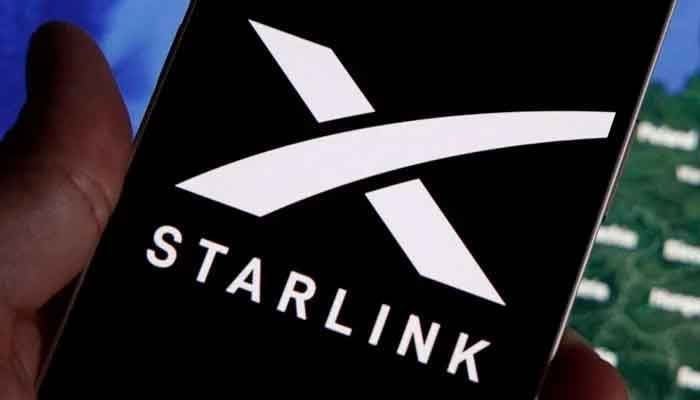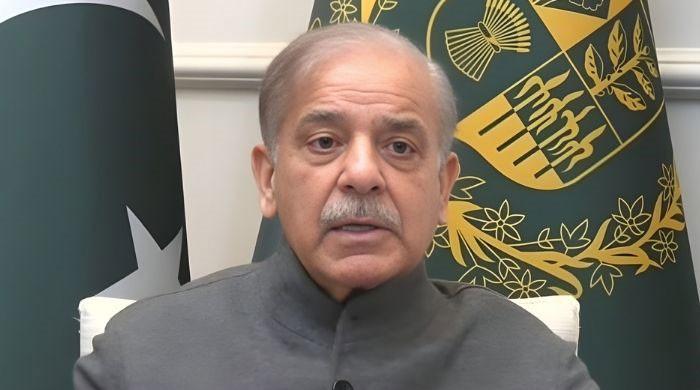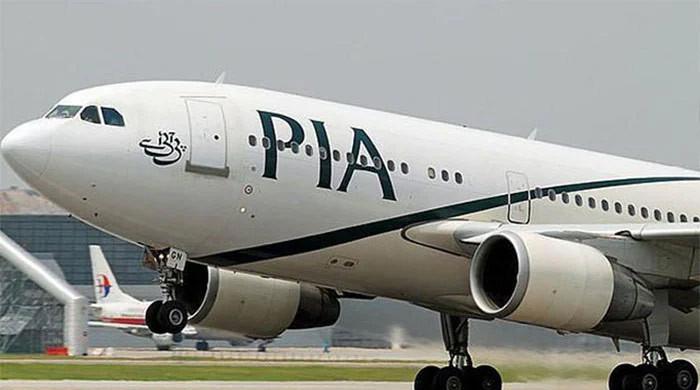Pakistan considers move to Low Earth Orbit for Starlink, others
LEO satellite operators say that all customers must follow structured onboarding process
January 14, 2025

- None of country's HEO operators are registered with the SECP.
- LEO technology offers advantages for remote, under-served areas.
- Their constellations require extensive infrastructure investments.
ISLAMABAD: Pakistan is considering different options for moving from High Earth Orbit (HEO) to Low Earth Orbit (LEO) operators in a bid to allow the operations of Elon Musk-owned Starlink and other companies in the country, The News reported on Tuesday.
The development comes as three LEO operators including Starlink, OneWeb and Shanghai Spacecom Satellite Technology have shown their interest to kick-start operations in Pakistan but Islamabad has not yet granted any permission.
The satellite communications and broadcasting landscape in Pakistan, at present, is dominated by established HEO operators that serve a range of sectors. Asiasat, which operates in over 50 countries, provides services to five customers in Pakistan, primarily TV channels.
Apstar, active in more than 30 countries, supports 12 customers in Pakistan and also focuses on TV broadcasting. Meanwhile, Yahsat which has a global footprint spanning over 150 countries, serves more than 400 customers in Pakistan, comprising 2,100 communication links.
SES (O3b), present in over 190 countries, supplies four links with approximately 4 Gbps of bandwidth to Jazz and Telenor in Pakistan via Supernet.
Furthermore, Azercosmos, operating in over 40 countries, serves two Pakistani clients, Wateen and Supernet. South Korean operator KTSAT which is active in more than 20 countries, supports Wateen Telecom and six TV channels in Pakistan for the Digital Satellite News Gathering (DSNG) services.
Yamal and AM7, Russian satellites with operations in around 30 countries, are utilised by the Pakistan Telecommunication Company Limited (PTCL) and the Special Communications Organisation (SCO).
These operators have a well-established presence in Pakistan, providing critical services to broadcasters, telecom operators, and businesses.
However, none of these HEO operators are registered with the SECP, nor do they have local offices or registrations with tax authorities in Pakistan, raising some questions about the requirements to comply with local regulations.
Additionally, Pakistan currently owns two satellites. The first, PAKSAT-1R, which has been in service since 2011, is nearing the end of its operational life this year. The second, PAKSAT-MM1, launched last year, is considered under-utilised.
The prevailing situation highlights the challenges in optimising the country’s satellite assets amidst growing demand for satellite-based communication services. The LEO satellite technology offers certain advantages particularly suitable for remote and under-served areas.
However, LEO constellations require extensive infrastructure investments, including the deployment of thousands of satellites and the establishment of ground-based gateway stations in each country to process and route data securely.
Without these gateway stations, the LEO operators cannot offer services in any market. Despite this, recent reports have incorrectly claimed that Starlink is already providing services in Pakistan.
The industry experts explain that this is not the case. The LEO operators cannot deliver services in any country until their gateway stations are set up, tested, and energised. The gateway stations ensure that all satellite traffic is routed securely through licensed systems, making it impossible to bypass regulatory frameworks or national oversight.
Adding to the misinformation, local media outlets have also published unverified details about the pricing mechanisms and launch plans of LEO operators, further confusing the public about their current capabilities.
In Pakistan, LEO satellite operators say that all customers must follow a structured onboarding process, placing orders through their official platforms or authorised resellers. Services are activated only after regulatory approvals are secured in the respective country. All traffic generated by users is routed through the gateway stations and local internet exchange points, ensuring compliance with national laws.
The Pakistan Space Activities Regulatory Board (PSARB), established under the Pakistan Space Activities Rules 2024, oversees all activities related to outer space and the upper atmosphere. The board ensures that satellite operations align with Pakistan's legal, security, and economic priorities. For LEO operators, obtaining an NOC from the PSARB is the first step toward acquiring a licence from the Pakistan Telecommunication Authority (PTA).
Satellite internet operators have argued that their services could help bridge the country's digital divide by providing high-speed internet to under-served rural areas, with plans to invest millions of dollars in infrastructure, including colocation in data centres, fibre optic connectivity, and construction materials.
Globally, the LEO satellite industry is experiencing rapid growth. Starlink is already offering services in over 100 countries, while OneWeb and Amazon's Project Kuiper are expanding their constellations.
However, these operators face challenging environments, including high infrastructure costs, regulatory bottlenecks, and concerns over space debris. For now, Pakistan's satellite internet market remains dominated by established HEO operators with global footprints.
Whether LEO players can gain a foothold in this tightly regulated environment depends on their ability to align with Pakistan's legal and strategic requirements.
As the regulatory process continues, the future of satellite connectivity in Pakistan remains uncertain, highlighting the complexities of introducing new technologies into a competitive and sensitive market, the industry expert concluded.









